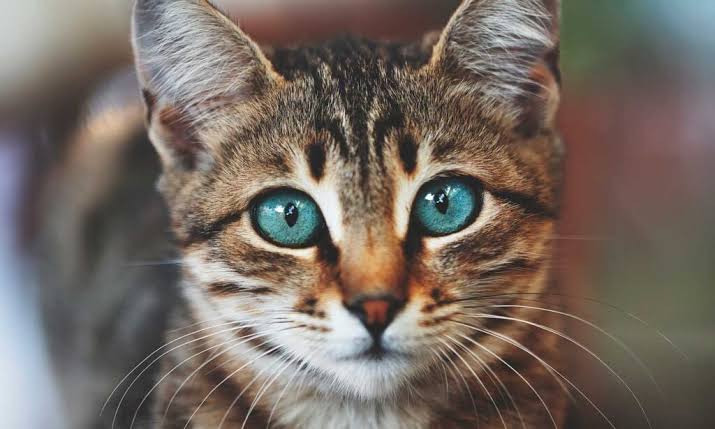
Best Brushing Techniques for Different Cat Breeds
Keeping your cat's eyes bright and clean is essential for their overall health and well-being. Regular cleaning with warm water and a soft cloth is important. Be vigilant for signs of eye problems, such as excessive tearing, redness, or cloudiness, and consult your veterinarian promptly if you notice anything unusual. A healthy diet, a clean environment, and regular veterinary checkups are all key to maintaining your cat's eye health. Remember, those bright, sparkling eyes are a sign of a happy and healthy kitty!
🐶 Pet Star
13 min read · 2, Feb 2025

Regular Cleaning is Key:
Just like we wash our faces, our feline friends need a little help keeping their eyes clean. The frequency depends on your cat. Some kitties are naturally prone to more discharge than others. But a good rule of thumb is to check their eyes daily and clean them as needed.
Gather Your Supplies:
Now, you don't need anything fancy! Just a few simple things:
- Soft, lint-free cloths or cotton balls: Avoid using tissues or paper towels, as they can leave behind tiny fibers that can irritate your cat's eyes.
- Warm water: Plain, lukewarm water is the best cleanser. Avoid using soap or any other cleaning solutions unless specifically recommended by your veterinarian.
- Pet-safe eye wipes (optional): These can be handy for quick cleanups, but make sure they're specifically formulated for pets and fragrance-free.
The Gentle Cleaning Process:
Now, here's the important part: be gentle! You don't want to poke or prod your kitty's eye.
- Wet the cloth or cotton ball: Dip it in the warm water and squeeze out any excess. You want it damp, not dripping.
- Wipe from the inside out: Gently wipe away any discharge or crustiness, always moving from the inner corner of the eye towards the outer corner. This prevents you from pushing any debris back into the eye.
- Use a fresh cloth or cotton ball for each eye: This helps prevent the spread of any potential infection.
- Reward your kitty: A little treat or some extra cuddles will make the whole process more pleasant for your cat (and for you!).
When to Call the Vet:
Now, while regular cleaning is important, there are times when you need to call in the professionals. Don't hesitate to contact your veterinarian if you notice any of the following:
- Excessive tearing or discharge: Especially if the discharge is yellow, green, or bloody.
- Redness or swelling around the eye: This could be a sign of infection or inflammation.
- Cloudy or hazy eyes: This could indicate a more serious problem, such as cataracts or glaucoma.
- Squinting or pawing at the eye: This suggests discomfort or pain.
- Changes in pupil size or shape: This can be a sign of neurological issues.
- Third eyelid constantly visible: While it's normal to see the nictitating membrane occasionally, it shouldn't be constantly visible.
Nutrition and Eye Health:
Just like with us, a healthy diet plays a big role in a cat's eye health. Make sure your kitty is getting a high-quality diet that's rich in essential nutrients, including:
- Taurine: This amino acid is crucial for feline eye health. Most commercial cat foods contain adequate levels of taurine, but it's always a good idea to check the label.
- Vitamin A: This vitamin is important for vision and overall eye health.
- Antioxidants: These help protect the eyes from damage caused by free radicals.
Environmental Factors:
Certain environmental factors can also affect your cat's eye health. Try to minimize your cat's exposure to:
- Dust and pollen: These can irritate the eyes and trigger allergies.
- Smoke: Just like with humans, smoke can be harmful to a cat's eyes.
- Chemicals: Avoid using harsh cleaning products or pesticides around your cat.
Regular Checkups are Essential:
Finally, regular veterinary checkups are crucial for maintaining your cat's eye health. Your veterinarian can examine your cat's eyes for any signs of problems and recommend appropriate treatment.
Q&A Section:
Q1: My cat's eyes seem to tear up a lot. Is that normal?
Ans: A little bit of clear tearing is normal, but excessive tearing, especially if it's discolored, could be a sign of a problem. It's best to consult with your veterinarian.
Q2: Can I use human eye drops for my cat?
Ans: No, you should never use human eye drops for your cat unless specifically directed by your veterinarian. Human eye drops may contain ingredients that are harmful to cats.
Q3: How often should I take my cat to the vet for an eye exam?
Ans: Your veterinarian will recommend a schedule for regular checkups, which may vary depending on your cat's age and health. Generally, annual checkups are recommended.
Q4: My cat has a little bit of crustiness in the corner of their eye. How should I clean it?
Ans: Gently wipe the area with a soft, damp cloth or cotton ball, always moving from the inside corner of the eye outwards.
Q5: Are there any specific cat breeds that are more prone to eye problems?
Ans: Yes, certain breeds, such as Persians and Himalayans, are more prone to certain eye conditions due to their facial structure
Similar Articles
Find more relatable content in similar Articles
Explore Other Categories
© 2024 Copyrights by rPets. All Rights Reserved.